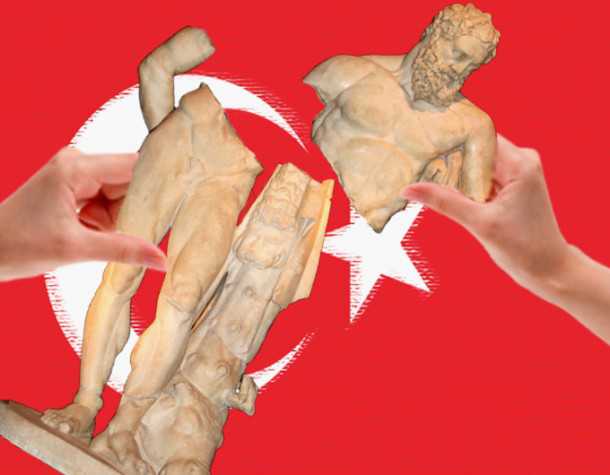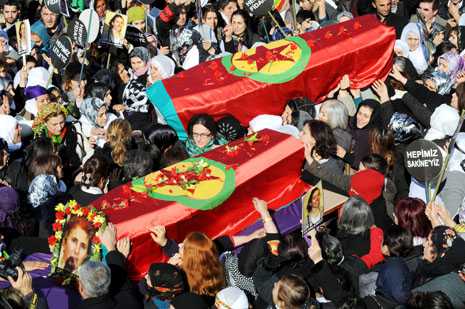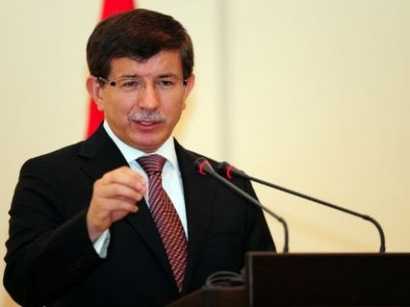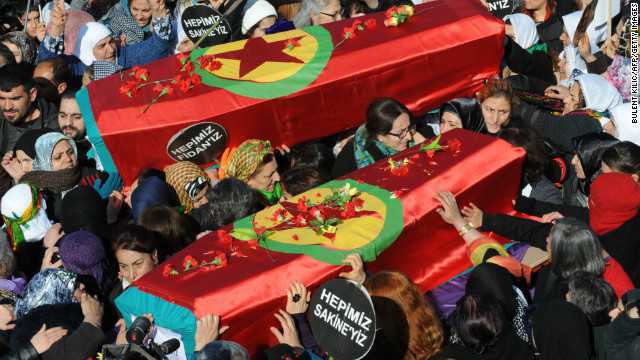
Reuniting the bust of Hercules with its body was one of the Culture Ministry’s great successes – (Wikimedia / Worldcrunch montage)
By Guillaume Perrier
LE MONDE/Worldcrunch
ISTANBUL – The treasure of Troy is back. The collection of golden jewelry from the ancient city, which had been stolen during the 19th century, was handed back to Turkey by the University of Pennsylvania last September.
The precious jewelry – known as the “Troy gold” – had been looted after the first excavations of Troy by a German archeologist in the 1870s. No one knows if Helen of Troy actually wore the jewels, but Turkey says it belongs to them. “It is only right that they be returned to where they were taken from,” declared Minister of Culture and Tourism Ertugrul Gunay.
These jewels are now set to be displayed in Ankara.
In December, the great Istanbul Archaeology Museum celebrated the return of a mosaic from 194 A.D., depicting Orpheus playing the lyre to calm wild animals. It was stolen in 1998 in Urfa (in ancient times Edessa), near the Syrian border. The mosaic had been auctioned at Christie’s in New York, and bought by the Dallas Art Museum for $85,000.
With those wonders from Asia Minor (current Turkey) more than 3,700 artifacts – statues, frescos, pots, tools and coins – have been recovered since 2007, thanks to an unprecedented campaign led by the Turkish Ministry of Culture and Tourism.
The 3,000 year-old Hattusa sphinx, removed from the Hittite imperial city located in the middle of Anatolia, which was on display at Berlin’s Pergamon Museum, also made the trip home recently.
But the most spectacular restitution was a bust of Hercules, handed back by the Boston Museum of Fine Arts. It was stolen in 1980 on the site of Perga and sold the next year to the American museum. The bust flew back to Turkey on Prime Minister Recep Tayyip Erdogan’s plane – who was returning home after the 2011 UN general assembly.
“Turkey had been campaigning for the marble’s return for the past two decades,” he declared, triumphant, as he landed in Ankara. The bust of Hercules could finally be reunited with the rest of his body, on display at the Antalya Museum in southwestern Turkey.
Challenging the museums in court
The Turkish government’s decades-long struggle to recover stolen artifacts has brought a certain number of museums to their knees. But other museums believe the artifacts belong to them, and are refusing to negotiate. This is the case of Paris’ Louvre Museum, whose Islamic wing holds a wall of Ottoman Iznik ceramic tites that Ankara says were stolen from the Istanbul Piyale Pacha Mosque by a French collector. But the Parisian museum argues the tiles were acquired legally.
The Louvre also has 16th century ceramic tiles that were taken from Sultan Selim II’s tomb in the Hagia Sophia in Istanbul. However, the UNESCO convention on the Means of Prohibiting and Preventing the Illicit Import, Export and Transfer of Ownership of Cultural Property was signed in 1970 and doesn’t apply to acquisitions made before that date.
This argument is inconceivable for Murat Suslu, the director of museums for the Turkish Ministry of Culture and Tourism: “What if the Turks came, took a stained glass window from Notre-Dame in the 19th century to renovate it and now refused to give it back?”
Priam’s treasure remains on display at Moscow’s Pushkin Museum. To get uncooperative countries to hand back their ancient artifacts, Turkey doesn’t hesitate to threaten them with cancelling archeological concessions (especially Germany and France), something these countries call tantamount to blackmail.
Turkey has also tried going to court to get its artifacts back. An Istanbul lawyer recently filed a claim with the European Court of Human Rights, in a bid to recover statues taken from the Mausoleum of Halicarnassus and currently on display at the British Museum.
Read the article in the original language.
Photo by – Wikimedia / Worldcrunch montage
All rights reserved ©Worldcrunch – in partnership with LE MONDE
Crunched by: Leo Tilmont
via Turkey vs. The Louvre: Ankara Renews Its Quest To Recover Antiquities – All News Is Global |.





